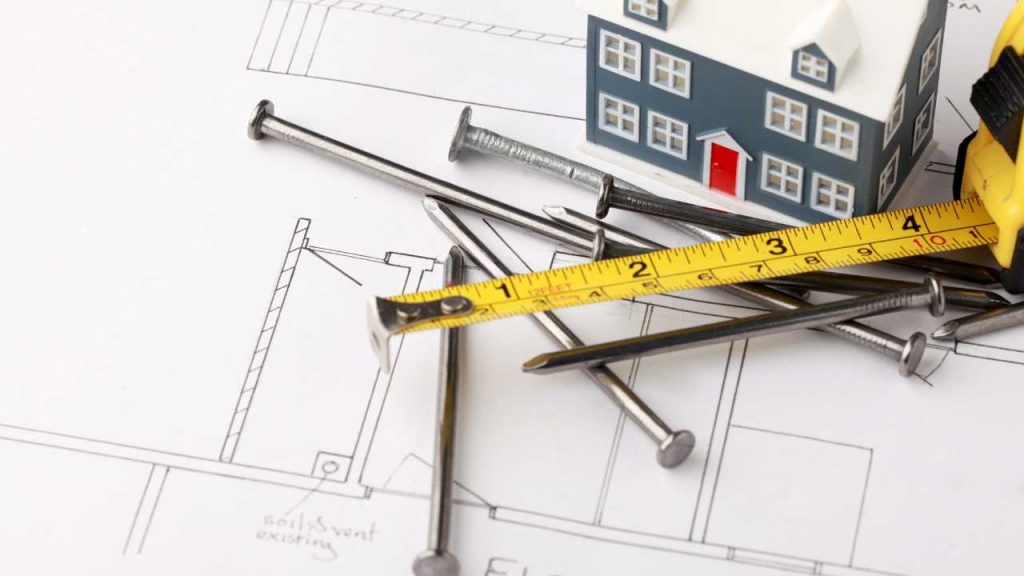Real Estate

Nazrisho & Associates, P.C. represents a wide array of institutional and private investors and developers – both domestic and foreign, major commercial and residential landlords and tenants, banks, funds and other financial institutions, and developers and converters of cooperative and condominium projects.
We have counseled clients in the acquisition, development, sale, financing and leasing of all types of real property, including major office buildings, residential complexes, shopping centers, hotels, manufacturing and warehouse facilities and raw land situated throughout the United States.
The Firm has significant experience in the following types of real estate matters:
- Drafting and negotiating purchase and sale agreements and options for various forms of real property
- Preparing and negotiating complex financing arrangements including mortgages, deeds of trust, letters of credit, industrial revenue bonds and other security instruments
- Leasing and subleasing of office, retail and industrial properties
- Sophisticated sale-leaseback, net lease and ground lease transactions
- Representing institutional and private lenders in commercial and residential loan transactions
- Preparing and negotiating joint venture and partnership agreements, leasing and brokerage agreements, and project management agreements
- Resolving complex real estate disputes, including the workout of problem loans, settlements with project creditors, foreclosures and bankruptcies
- Resolving complex title issues
- Cooperative and condominium conversions and developments
What is a Real Estate Lawyer and When Do You Need One?
In the world of real estate transactions, a real estate lawyer plays a crucial role in ensuring that everything goes smoothly and legally. When navigating the complexities of property transactions in NYC, having an experienced real estate attorney by your side can provide valuable guidance and protection.
The Role of a Real Estate Attorney in NYC
A real estate attorney in NYC is responsible for a wide range of tasks and responsibilities to safeguard your interests throughout the process. They review legal documents, conduct thorough title searches, and ensure compliance with local laws and regulations. By closely working with other parties involved, such as real estate agents, lenders, and title companies, they ensure that all necessary legal requirements are met.
Scenarios That Necessitate a Real Estate Lawyer
There are several situations in which the expertise of a real estate lawyer is essential:
- Buying or selling property: Whether you are purchasing your dream home or selling an investment property, a real estate lawyer will guide you through the legalities, draft or review contracts, handle negotiations, and ensure a smooth transfer of ownership.
- Dealing with complex legal issues: Real estate transactions can entail complex legal issues, such as joint ownership, inheritance disputes, or zoning conflicts. In such cases, a real estate lawyer will provide expert advice, conduct thorough research, and offer solutions to resolve the complexities.
- Facing disputes or litigations: Disputes may arise during property transactions, involving issues such as breach of contract, non-disclosure of defects, or boundary disputes. A real estate lawyer will represent and defend your interests, negotiate settlements, or, if necessary, provide representation in court.
- Navigating commercial real estate transactions: Commercial real estate transactions often involve intricate legalities, including lease agreements, zoning regulations, and environmental considerations. A real estate attorney with experience in commercial real estate transactions will ensure that all legal requirements are met, protecting your interests and minimizing risks.
By understanding the significant role a real estate lawyer plays and recognizing the scenarios that require their expertise, you can make informed decisions and ensure that your property transactions proceed smoothly and legally.
Understanding NYC Residential Real Estate Law
This section focuses on the legal considerations involved in buying and selling residential properties in New York City. It provides an overview of NYC residential real estate law and delves into the specific regulations and requirements related to co-op and condo properties.
Buying and Selling Residential Property Legally
When it comes to buying or selling residential property in NYC, it is essential to understand the legalities involved to ensure a smooth transaction. Here are key aspects to consider:
- Contract Negotiations: Contracts play a crucial role in buying and selling residential properties. A real estate lawyer can assist in negotiating favorable terms and conditions that protect your interests.
- Due Diligence: Conducting due diligence is important to uncover any potential issues with the property. This includes inspecting the property, reviewing past sales history, and verifying financial disclosures.
- Title Searches: A title search helps verify the property’s ownership and any existing liens or encumbrances. A real estate lawyer can assist in conducting a thorough title search to ensure a clean title.
- Financing: If you require financing for your property purchase, you may need to navigate various legal considerations related to mortgages, loan agreements, and other financial aspects. A real estate lawyer can provide guidance throughout this process.
- Closing Procedures: The closing process involves various legal documents and procedures. A real estate lawyer can review and prepare the necessary documents, ensuring a legally sound and smooth closing.
Navigating Co-op and Condo Regulations in NYC
Co-op and condo properties come with their specific regulations and legal requirements. Understanding these is crucial when buying or selling such properties in New York City. Here are important considerations:
- Co-op Regulations: Co-op properties have unique ownership structures and bylaws. It is essential to review and understand the co-op’s rules, regulations, and financial requirements before entering into a purchase or sale agreement.
- Condo Regulations: Condo properties have their own set of regulations and governance, which may vary from co-op properties. Understanding the condo association’s rules, fees, and management structure is essential to ensure a smooth transaction.
- Legal Disclosures: When selling a co-op or condo property, specific legal disclosures are required to inform potential buyers about any known defects, restrictions, or pending legal actions that may affect the property’s value or desirability.
- Transfer Procedures: Co-op and condo properties often have transfer procedures, including board approval, interviews, and required documentation. A real estate lawyer can guide you through these procedures to ensure compliance and a successful transfer.
By understanding NYC residential real estate law and the specific regulations related to co-op and condo properties, you can navigate the complexities of buying and selling residential properties legally in New York City.
Commercial Real Estate Transactions and Legalities
Commercial real estate transactions involve intricate legalities that require specialized expertise. Whether you are leasing commercial property, acquiring real estate assets, or navigating zoning regulations, understanding the legal aspects is crucial for a smooth transaction. Here are some key considerations:
- Leasing Agreements: When entering into a commercial lease agreement, it is essential to carefully review and negotiate the terms to protect your interests. A commercial real estate attorney can guide you through lease terms, including rent escalation, maintenance responsibilities, and lease duration.
- Property Acquisitions: The acquisition of commercial property requires extensive due diligence to ensure a sound investment. A real estate lawyer can assist with contract negotiations, title searches, environmental assessments, and land use zoning regulations.
- Zoning Regulations: Understanding local zoning regulations is critical when developing or using commercial real estate. A knowledgeable attorney can help navigate zoning laws, obtain necessary permits and approvals, and address any compliance issues that may arise.
- Environmental Considerations: Commercial real estate transactions often involve environmental considerations. It is important to assess potential environmental risks associated with the property, such as contamination or hazardous materials, and ensure compliance with applicable environmental laws and regulations.
By working with a real estate attorney experienced in commercial real estate transactions, you can address the legal complexities and mitigate potential risks, ensuring a successful outcome for your commercial property endeavors.
NYC Property Lawyers: Handling Disputes and Litigation
Property disputes and litigation are common occurrences in the real estate industry. When conflicts arise, it is essential to have the guidance and expertise of experienced NYC property lawyers. These legal professionals specialize in handling a wide range of disputes and litigation related to real estate transactions.
Here are some of the types of disputes and litigation that NYC property lawyers can help you navigate:
- Landlord-Tenant Disputes: Whether you are a landlord facing eviction challenges or a tenant dealing with lease violations, NYC property lawyers can assist in resolving these disputes.
- Boundary Disputes: Property boundary issues can often lead to conflicts between neighboring property owners. NYC property lawyers can help establish and protect your property rights in these situations.
- Breach of Contract Cases: If there has been a violation of terms or conditions outlined in a real estate contract, NYC property lawyers can guide you through the legal process and help ensure your rights are upheld.
- Title Disputes: Disputes over property ownership or title defects can be complex and require the expertise of NYC property lawyers to resolve.
- Construction Defects: In cases where a property has construction defects that affect its value or safety, NYC property lawyers can assist in resolving disputes between property owners, contractors, and developers.
When facing any of these disputes or litigation matters, it is crucial to seek the assistance of experienced NYC property lawyers who specialize in real estate law. These legal professionals have the knowledge, skills, and strategic approach to help protect your interests and find resolution.
Real Estate Contract Lawyer: Negotiating and Drafting Agreements
A real estate contract lawyer plays a crucial role in protecting the rights and interests of their clients by negotiating and drafting agreements. When it comes to real estate transactions, having a skilled lawyer who is well-versed in property law is essential to ensure that all legal documents are properly prepared and legally binding.
Lease Agreements and Tenant Rights
One of the key areas where a real estate contract lawyer can assist is in lease agreements and tenant rights. Whether you’re a landlord or a tenant, having a well-drafted lease agreement is crucial to avoid disputes and protect your rights. A real estate contract lawyer can help you negotiate and draft lease agreements that cover important aspects such as lease terms, rent payments, maintenance responsibilities, and dispute resolution procedures. They can also provide guidance on tenant rights and ensure compliance with local laws and regulations.
Purchase Contracts and Due Diligence
Another important aspect of real estate transactions is the purchase contract and due diligence process. Whether you’re buying or selling a property, a real estate contract lawyer can guide you through the negotiation and drafting of the purchase contract. They will ensure that the contract accurately reflects the terms agreed upon by both parties and includes necessary provisions to protect your interests.
In addition, a real estate contract lawyer can assist with due diligence, which involves conducting a thorough investigation of the property’s legal and financial status. This includes reviewing title documents, conducting property surveys, and assessing potential risks or liabilities. By conducting due diligence, you can make informed decisions and identify any issues that may affect the transaction.
Overall, engaging the services of a real estate contract lawyer is crucial to ensure that your rights and interests are protected in real estate transactions. Whether you’re dealing with lease agreements and tenant rights or purchase contracts and due diligence, a skilled lawyer can provide invaluable guidance and expertise to navigate the complexities of property law.
Your Closing Process Simplified With a Real Estate Closing Attorney
The closing process is a crucial stage in real estate transactions. It is the final step where ownership of the property is transferred from the seller to the buyer. While this process can be complex and overwhelming, a real estate closing attorney can simplify it for you, ensuring a smooth and hassle-free experience.
When you enlist the services of a real estate closing attorney, they will take care of all the legal aspects involved in the closing process. Here are some of the tasks and responsibilities they will handle:
- Reviewing closing documents: Your attorney will carefully review all the documents related to the closing, including the purchase agreement, title documents, loan documents, and any other legal paperwork. They will ensure that everything is in order and accurately reflects the agreed-upon terms.
- Facilitating communication: Your attorney will act as a mediator between you, the seller, the lender, and any other parties involved in the closing process. They will ensure effective communication and resolve any issues that may arise.
- Ensuring legal requirements: A real estate closing attorney will ensure that all the necessary legal requirements are met during the closing process. This includes verifying the legitimacy of the title, conducting necessary searches, and ensuring compliance with local laws and regulations.
By having a real estate closing attorney by your side, you can have confidence that the closing process will be handled professionally and efficiently. They will guide you through each step, explain any legal jargon, answer your questions, and protect your interests throughout the process.
So, whether you are buying or selling a property, don’t underestimate the importance of a real estate closing attorney. Their expertise and attention to detail can make a significant difference in ensuring a successful and stress-free closing.






















